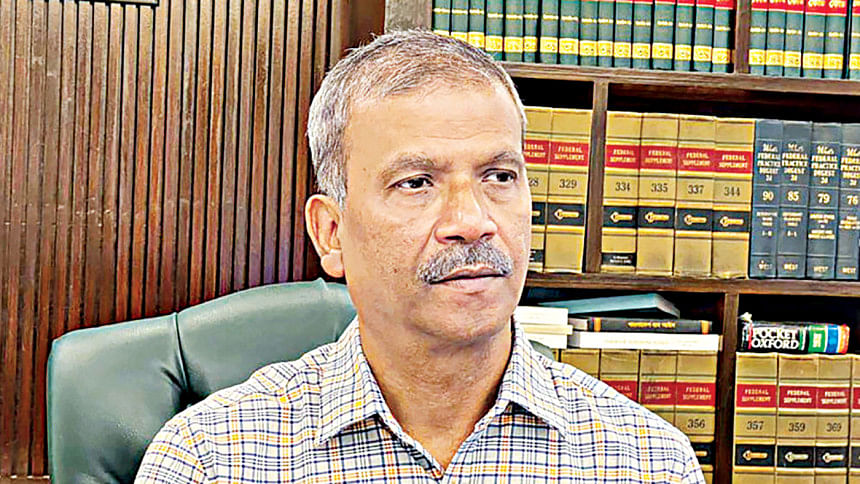Law adviser accuses Star of bias, fails to give details

Law Adviser Asif Nazrul yesterday accused The Daily Star and Prothom Alo of bias during a seminar in the capital.
Referring to The Daily Star, he cited an incident that he claimed took place 13 to 14 years ago, adding that he could provide all the evidence if asked.
However, when pressed for details later, he did not provide any as of the filing of this report at 1:30am today. He said the incident might have occurred 20 years ago and that he could not recall the specifics.
Talking to our correspondent, he also said maybe it should not have been mentioned in public, and that the matter should be let go.
Earlier, speaking at the event, organised by the Centre for Governance Studies, the law adviser had said, "I would like to talk about the code of conduct in journalism. As far as I know, apart from Prothom Alo and The Daily Star, no other newspaper in Bangladesh has a code of conduct. A code of conduct is a form of self-regulation -- you'll find it in every major newspaper in the world.
"Let me give you examples from the two dailies where there is a code of conduct. At The Daily Star, around 13 to 14 years ago ... and I can give you all the evidence if you want ... there was a lecturer at the law department of Dhaka University. I remember it clearly because of his position. He had made extremely offensive remarks about Khaleda Zia, and in response, Chhatra Dal became very angry. They began protesting and demanded his removal from the university."
He continued, "But The Daily Star turned him into a national hero -- they started featuring him on the front page, calling him a professor, even though he was just a lecturer. Every day, the paper referred to him as 'professor', simply because he had insulted Khaleda Zia.
"When the Dhaka University Teachers Association unanimously decided to expel him, that news never made it to The Daily Star.
"I'm very sorry to say this …that man was so deranged that he died by suicide a few years ago. And this is the person The Daily Star turned into a hero.
"But when he was expelled from the Dhaka University Club, no less -- the first time someone was unanimously expelled in the history of that club -- The Daily Star didn't print a word about it."
Turning to this newspaper's correspondent present at the seminar, the law adviser said, "If you raised this with Mahfuz bhai[the editor and publisher of The Daily Star] …I will give it to you… This can be a classic story.
"My question is: why did this newspaper publish two incorrect pieces of information?
"First, they elevated a lecturer to 'professor' and turned him into a front-page icon. Second, when he was expelled, they completely ignored the news."
He recommended, "This is a request to journalists in general. Collectivise and suggest alternative proposals. That will surely be better than any initiative that the government comes up with."
Nazrul also said, "If journalists have inbuilt partisanship, then it will be difficult for the general public to trust them."
Following the seminar, our correspondent requested the law adviser to provide us with the details of the case he had mentioned at the seminar.
He told our correspondent over the phone that he could not recall the details of the incident. "The incident may have happened 20 years ago, and the first name of the lecturer in question may have been Shafique."
He said he did not have any further details at the moment.
The law adviser went on to reassess his action of referring to the case at the seminar. He told our correspondent, "Perhaps, this case should not have been referred to publicly. The man had committed suicide later on…"
He requested the correspondent to put the matter to rest. The Daily Star, however, believes it has a responsibility to look into it.
Later on, The Daily Star sent another message requesting him to furnish the newspaper with specifics but was yet to receive a response.

 For all latest news, follow The Daily Star's Google News channel.
For all latest news, follow The Daily Star's Google News channel. 








Comments